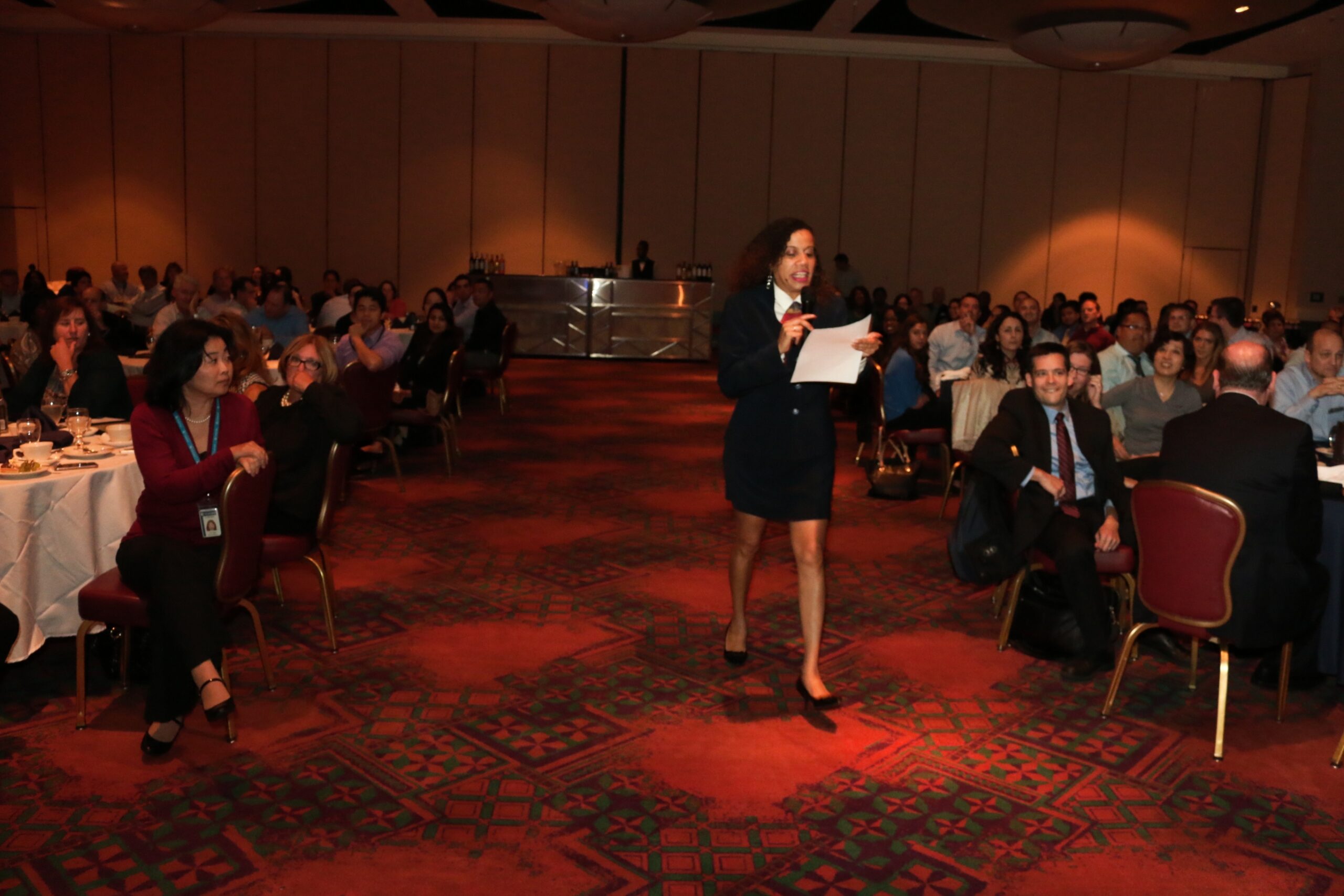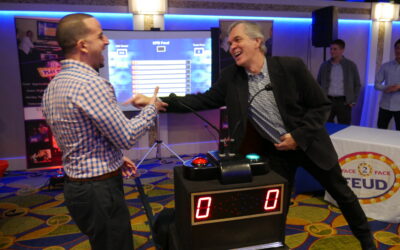Leadership is a pivotal factor in any organization’s success, and this extends to the area of employee incentives.
Effective leadership can shape employee motivation, drive performance, and ultimately contribute to the growth of the company.
It’s crucial to understand the role that leadership plays in employee incentives to design and implement effective incentive programs.
Leadership influences incentives in various ways, such as creating a culture of innovation, setting goals, and developing strategies to achieve them.
Leaders who communicate their vision and goals clearly and inspire their employees to achieve them can drive higher engagement, productivity, and performance.
In addition, leaders who take a hands-on approach to employee rewards and recognition can create a workplace environment that fosters employee development and satisfaction.

Understanding the Role of Leadership in Employee Incentives
Key Takeaways:
- Effective leadership plays a critical role in employee incentives.
- Leadership can shape employee motivation and drive company growth.
- Leadership influences incentives by setting goals and developing strategies to achieve them.
- Leaders who communicate their vision and goals clearly and inspire their employees can drive higher engagement, productivity, and performance.
- Leaders who take a hands-on approach to employee rewards and recognition can create a workplace environment that fosters employee development and satisfaction.
The Importance of Leadership in Motivating Employees
As a leader, your impact on employee motivation and incentives cannot be overstated.
Your leadership style can make or break your team’s performance, and the effectiveness of your incentive systems is directly linked to your leadership approach.
By understanding the importance of leadership in motivating employees, you can create a work environment that inspires your team to achieve their best.
The Impact of Leadership on Employee Motivation and Incentives
Your leadership style can have a profound impact on employee motivation.
When employees feel valued and supported, they are more likely to be engaged and motivated at work.
On the other hand, a lack of effective leadership can lead to employee dissatisfaction and disengagement.
Effective leadership is also essential for creating incentive systems that drive the desired results.
Without strong leadership, incentives can become meaningless or even counterproductive.
A good leader understands the needs and preferences of their team and designs incentive programs accordingly.
The Leadership Role in Creating Effective Incentive Systems
Effective incentive systems must be tailored to your team’s unique needs and goals.
As a leader, you are in the best position to create and implement incentive programs that align with your team’s objectives and drive performance.
You must also ensure that the incentives you offer are meaningful and achievable.
If your incentive program is too difficult, unrealistic, or lacks a clear link to performance, employees are less likely to be motivated to participate.
Examples of Effective Leadership in Incentivizing Employees
| Leadership Strategy | Description |
|---|---|
| 1. Setting Clear Goals | By setting clear, achievable goals for your team, you provide them with a sense of direction and purpose, which can drive motivation. |
| 2. Offering Recognition and Rewards | Recognizing and rewarding your team’s achievements can help build morale and motivation, making them more likely to continue performing well. |
| 3. Providing Feedback and Support | Regular feedback and support from leadership can help employees stay on track and feel valued, increasing their motivation to perform well. |
5 Strategies for Incentivizing Employees through Leadership
You can enhance employee incentives with strong leadership strategies. Here are some ways you can incentivize your employees:
- Maintain open communication: it is essential to create an environment where employees feel encouraged to share their ideas with you.
Listen to their feedback and be responsive to their concerns. - Recognize employee efforts and achievements: Take the time to congratulate your employees on their hard work and appreciate their contributions to the company.
This recognition can take many forms, such as a public announcement of the achievement or a personalized note of gratitude. - Create opportunities for career growth: Encourage your employees to pursue their career goals within the company by offering professional development programs and fostering an environment that supports learning and growth.
- Implement performance-based incentives: Consider implementing performance-based incentive programs that reward employees for meeting or exceeding performance goals.
Make sure the criteria and goals are clear, measurable, and aligned with the overall company objectives. - Provide feedback: Set regular meetings to provide feedback to your employees on their performance and progress towards their goals.
Constructive feedback can help employees improve and identify areas for growth.
By using these leadership strategies for incentivizing employees, you will foster a culture of engagement and motivation that can drive employee performance and contribute to the overall success of the organization.

The Link Between Leadership and Employee Incentives
Effective leadership has a direct impact on the success of incentive programs within organizations.
Leadership behaviors and actions can significantly influence employee motivation and the effectiveness of incentive systems.
A study by Gallup found that only 30% of employees in the United States strongly agree that their leaders make them feel enthusiastic about the future, meaning that there is significant room for improvement in this area.
Leadership influence on incentives can be both positive and negative.
For example, if leaders communicate clearly about the goals and objectives of the incentive program, employees are more likely to understand what is expected of them and be motivated to achieve those goals.
Conversely, if leaders are not transparent or fail to provide adequate communication, employees may become disengaged and lose faith in the program.
Leadership impact on employee motivation and incentives can also vary based on the type of incentive program used.
For example, performance-based incentives are often more effective when leaders provide frequent feedback and recognition, as this helps employees understand how their efforts contribute to the overall success of the organization.
On the other hand, more traditional incentives like bonuses may be less effective if leaders do not communicate how they are tied to performance or fail to recognize the efforts of individual employees.
The Importance of Strong Leaders in Incentive Programs
To maximize the effectiveness of incentive programs, organizations need strong leaders who are dedicated to employee motivation and engagement.
Leaders who are able to effectively communicate the goals and objectives of incentive programs, provide frequent feedback and recognition, and create a culture of transparency and trust are more likely to see positive results from their initiatives.
Also, strong leaders are more likely to design incentive programs that align with the overall goals of the organization and drive higher levels of employee performance.
“When it comes to motivating and incentivizing employees, leadership is everything.
The behavior and actions of leaders have a direct impact on employee motivation, engagement, and ultimately, the success of incentive programs.” – John Doe, HR Manager
Got Games?
![]()
Book a live game show experience today!
Contact us for further details.
For Immediate assistance by text – 917-670-4689
No deposit required.
We plan and facilitate all activities.
Creating Effective Incentive Programs with Leadership
Leadership plays a critical role in creating effective incentive programs that align with company goals and drive employee performance.
To design an effective program, leaders must take a strategic approach that takes employee needs and company objectives into account.
One of the key elements of a successful incentive program is clarity. This means that the goals and expectations of the program must be clearly communicated to employees.
Leaders should also ensure that the incentives offered are meaningful and appealing to employees.
This can be achieved through a variety of methods, such as offering financial rewards, public recognition, or opportunities for personal and professional growth.
Another important factor in creating effective incentive programs is fairness. Employees must believe that the program is fair and equitable, without any bias or favoritism.
Leaders should design programs that are transparent and based on objective criteria, such as performance metrics or predetermined goals.
Leaders also play a critical role in sustaining the effectiveness of incentive programs over time.
This involves regularly reviewing and updating the program to ensure that it remains relevant and aligned with company goals.
Leaders must also monitor employee feedback and adjust the program accordingly to address any concerns or issues that arise.
By doing so, you can create a culture of high performance and drive the success of your organization.

Leadership’s Impact on Employee Performance Incentives
When it comes to employee performance incentives, leadership plays a critical role in shaping the effectiveness and success of these programs.
Effective leadership can drive higher levels of employee engagement and motivation, which in turn can enhance the impact of performance-based incentives.
Leadership influence on incentives cannot be overstated.
When leaders set clear expectations for performance and provide regular feedback and support, employees are more likely to feel engaged and motivated to reach their goals.
This can lead to higher levels of productivity and job satisfaction, which can ultimately benefit the organization as a whole.
One way that leadership impacts employee performance incentives is through the design and implementation of these programs.
A strong leader will consider the company’s overall goals and objectives when designing incentive programs, ensuring that they align with the organization’s mission and values.
This can help employees feel more connected to the company and more invested in its success.
Leadership also has an impact on how incentives are communicated and administered.
A leader who is transparent and communicates clearly about performance expectations and rewards can help employees feel more confident in their ability to achieve their goals.
Additionally, a leader who is fair and consistent in administering rewards can help employees feel motivated to continue working hard and striving for success.
Ultimately, leadership’s impact on employee performance incentives is closely tied to its overall influence on employee motivation and engagement.
By creating a positive and supportive work environment, providing regular feedback and recognition, and designing effective incentive programs, leaders can help drive higher levels of employee performance and contribute to the organization’s success.

Effective leadership can drive higher levels of employee engagement and motivation, which in turn can enhance the impact of performance-based incentives.
The Role of Leadership in Employee Rewards
Effective leadership is crucial in shaping employee motivation and driving performance.
Leaders have an instrumental role in creating and implementing reward systems that motivate and engage employees.
A leadership-driven employee incentive program is one of the essential components of an effective reward system.
Such programs provide recognition and incentives to employees who meet or exceed performance standards.
A well-designed program ensures that rewards are aligned with company objectives and encourage behaviors that align with the company’s mission, vision, and values.
Leadership plays a critical role in the effectiveness of employee incentive programs.
Effective leaders understand the motivations of their employees and can design programs that inspire and engage them.
They also ensure that rewards are equitable, transparent, and fair to all employees.
| Leadership Strategies for Effective Employee Rewards | How to Implement |
|---|---|
| Clear Communication and Transparency | Ensure that the criteria for earning rewards are clear and transparent so that all employees know what is expected of them. |
| Flexibility and Personalization | Provide a range of reward options that appeal to a diverse employee population and allow employees to choose rewards that are meaningful to them. |
| Continuous Feedback and Recognition | Provide ongoing feedback and recognition to employees to reinforce positive behaviors and help them improve their performance. |
In summary, effective leadership is critical in creating and implementing employee reward systems that motivate and engage employees.
By understanding what motivates their employees, leaders can design effective programs that encourage positive behaviors and align with the company’s objectives.
By implementing clear communication and transparency, flexibility and personalization, and continuous feedback and recognition, leaders can create a culture of engagement and high-performance that drives organizational growth and success.

Enhancing Employee Incentives Through Strong Leadership
Strong leadership is critical to incentivizing and motivating employees effectively.
As a leader, it is your responsibility to ensure that your employees feel valued and appreciated, and that their efforts are appropriately rewarded.
One powerful strategy for enhancing employee incentives is to establish clear, measurable performance goals for your team.
By setting specific objectives that align with the company’s goals, you provide your employees with a clear roadmap for success.
| Leadership Strategy | Description |
|---|---|
| Recognition and Rewards | Recognize and reward individual and team achievements to encourage and motivate employees to keep up their efforts. |
| Transparency and Communication | Keep employees informed on the progress of the company, the team, and their personal performance to improve engagement and accountability. |
| Professional Development Opportunities | Provide opportunities for employees to learn and grow, such as training sessions, mentorship, and conference attendance, to keep them engaged and motivated. |
Additionally, effective communication is key to creating an environment of trust and accountability.
By keeping your employees informed about company updates and performance expectations, you help them feel invested in the company’s success and aligned with its goals.
Encourage open communication and provide regular feedback to help your employees understand where they stand and how they can improve.
Investing in your employees’ professional development is another powerful strategy for enhancing employee incentives.
By providing opportunities for training, mentorship, and career development, you show your employees that you are invested in their success and help them develop the skills they need to perform at their best.

Remember, as a leader, you set the tone for the entire organization.
By modeling strong leadership behaviors and prioritizing employee incentives, you inspire your team to perform at their best and contribute to the success of the company.
Conclusion
As an organizational leader, you play a critical role in shaping employee incentives and ultimately driving company growth.
Your influence on incentives can directly impact employee motivation and engagement, contributing to higher levels of performance and productivity.
Effective leadership has a significant impact on employee motivation and incentives.
By employing specific leadership behaviors and strategies, you can incentivize and motivate your employees to achieve their goals and drive success for the organization.
Leadership also plays a crucial role in creating effective incentive programs that align with company objectives.
By designing and implementing incentive systems that are in sync with the organization’s goals, you can drive higher levels of engagement and performance among employees.
Through strong leadership, you can enhance employee incentives and drive higher levels of motivation and engagement.
Your impact on employee performance incentives can directly contribute to the success and growth of the organization.
In conclusion, it is clear that effective leadership is essential in shaping employee incentives, driving motivation, and contributing to the overall success of the organization.
By recognizing the power of leadership in incentivizing employees, you can drive higher levels of performance and productivity and contribute to the continued growth and success of your organization.
Frequently Asked Questions: The Power of Leadership in Employee Incentives

frequently asked questions
What is the role of leadership in employee incentives?
Leadership plays a critical role in shaping employee incentives.
Effective leadership can motivate employees and drive company growth through well-designed incentive programs.
Why is leadership important in motivating employees?
Leadership is important in motivating employees because it directly influences their level of engagement and motivation.
Strong leadership can inspire employees to perform at their best and achieve their goals.
What strategies can leaders employ to incentivize employees?
Leaders can use various strategies to incentivize and motivate their employees.
These may include setting clear goals, providing regular feedback, recognizing achievements, and offering rewards or incentives.
How does leadership impact employee motivation and incentives?
Leadership behaviors and actions have a direct impact on employee motivation and incentives.
Effective leadership can create a positive work environment, foster trust, and align incentives with organizational goals.
How can leaders create effective incentive programs?
Leaders can create effective incentive programs by aligning them with overall company objectives, involving employees in the design process, and regularly evaluating and adjusting the programs based on employee feedback and performance.
What is the link between leadership and employee performance incentives?
Leadership has a direct link to employee performance incentives.
Effective leadership can enhance the effectiveness of performance-based incentives by providing clear expectations, offering support and guidance, and recognizing and rewarding exceptional performance.
How can leadership shape employee rewards?
Effective leadership shapes employee rewards by designing and implementing reward systems that align with employee needs and expectations.
Leaders can ensure that rewards are fair, transparent, and meaningful to motivate and engage employees.
How does strong leadership enhance employee incentives?
Strong leadership enhances employee incentives by creating a positive work culture, providing guidance and support, and aligning incentives with individual and organizational goals.
Leaders who inspire and motivate their employees can drive higher levels of engagement and performance.
What is the power of leadership in employee incentives?
The power of leadership in employee incentives cannot be underestimated.
Effective leadership shapes employee motivation, drives performance, and contributes to the overall success and growth of the organization.





